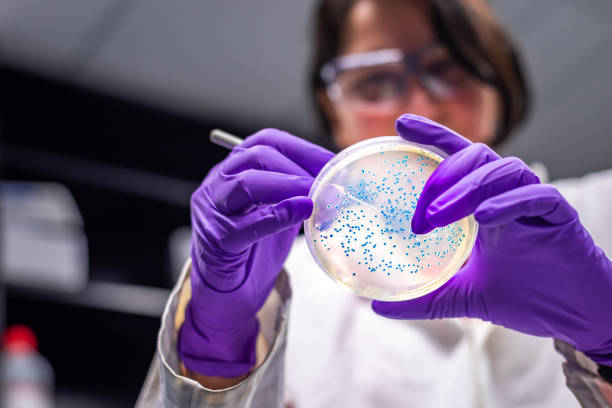The Role of Gut Microbiota in Obesity
The gut microbiota, a diverse community of microorganisms residing in the human digestive tract, has been shown to influence digestion, absorption, and metabolism of food. These microbes also affect body weight by modulating metabolism, appetite, bile acid metabolism, and the hormonal and immune systems. Understanding the role of gut microbiota in weight regulation has opened new avenues for weight management strategies beyond traditional diet and exercise.
Historical Insights:
Initial studies using soluble fiber in obese rodents revealed that altering the gut microbiota composition could positively influence obesity and type 2 diabetes mellitus (T2DM). These compounds, known as prebiotics, act like fertilizers that stimulate the growth of beneficial bacteria. Subsequent research demonstrated that germ-free mice (mice lacking a gut microbiota) developed less adipose mass and were less prone to obesity compared to conventional mice. Human studies also identified altered microbial compositions in individuals with obesity, suggesting an imbalance between the phyla Firmicutes and Bacteroidetes as a potential factor.
Mechanisms of Microbiota Influence on Body Weight
Although much remains unknown, significant mechanistic insights have been gained over the past decade into how the gut microbiota modulates host metabolism and weight status.
Short-Chain Fatty Acids (SCFAs):
SCFAs, primarily acetate, propionate, and butyrate, are produced by gut bacteria through carbohydrate fermentation. These SCFAs regulate luminal pH, mucus production, and mucosal immune function. They can also enter the systemic circulation and affect metabolism or peripheral tissue function. While SCFAs provide a direct source of extra calories, they are thought to beneficially contribute to systemic energy regulation by decreasing hepatic glucose and lipid production. Additionally, SCFAs stimulate the secretion of anorexigenic hormones such as PYY and GLP-1 in the colon, facilitating gut-brain axis signaling to regulate immunity, intestinal transit time, inflammation, and metabolism.
Bacterial Translocation:
Another proposed mechanism is bacterial translocation to various tissues and organs (including human adipose tissue) due to increased intestinal permeability. However, the effects of bacteria and bacterial DNA in peripheral tissues on host metabolism remain elusive.
Modulating Microbiota for Weight Loss
The availability of inexpensive, calorically dense foods and reduced physical activity have contributed significantly to rising obesity rates. Lifestyle interventions combining hypoenergetic diets and regular exercise are currently the primary approach to weight loss and metabolic risk reduction. However, adherence to these interventions is challenging, and weight-loss success varies among individuals due to a complex interplay of environmental, genetic, neural, and endocrine factors. Recent research suggests that baseline gut microbiota composition could partly predict diet-induced weight-loss responses.
Scientific Approaches to Weight Loss
Several scientifically-backed strategies are being explored to manage weight by modulating the gut microbiota:
Ketogenic Diet:
A ketogenic diet, high in fats and low in carbohydrates, alters the gut microbiota composition and has been shown to promote weight loss by inducing ketosis, a metabolic state where the body burns fat for fuel.
Mediterranean Diet:
Rich in fruits, vegetables, whole grains, and healthy fats, the Mediterranean diet supports a diverse gut microbiota and has been associated with weight loss and improved metabolic health.
Intermittent Fasting:
Intermittent fasting involves cycling between periods of eating and fasting. This eating pattern can influence gut microbiota composition and promote weight loss and metabolic health.
Fibre-Enriched Diets:
Diets high in fiber act as prebiotics, stimulating the growth of beneficial gut bacteria. Increased fiber intake is linked to weight loss and improved metabolic markers.
Personalized Diets:
Personalized diets tailored to an individual's gut microbiota composition and metabolic profile hold promise for optimizing weight loss and metabolic health.
Medication:
Medications targeting specific metabolic pathways influenced by gut microbiota are being explored as potential weight-loss treatments.
Bariatric Surgery:
Bariatric surgery, a highly effective weight-loss intervention, has been shown to alter gut microbiota composition, contributing to its metabolic benefits.
Faecal Microbiota Transplantation (FMT):
FMT involves transferring gut microbiota from a healthy donor to an individual with obesity. Preliminary studies suggest FMT can modulate gut microbiota composition and improve metabolic health.
Opportunities and Challenges
While the potential of gut microbiota-related approaches for weight management is promising, several challenges and limitations remain. The heterogeneity of gut microbiota composition among individuals necessitates personalized approaches. Additionally, the long-term effects and safety of interventions such as FMT and medication targeting gut microbiota need further investigation. Understanding the complex interactions between gut microbiota and host metabolism is essential for developing effective and sustainable weight-loss strategies.
The gut microbiota represents a new frontier in weight loss strategies, offering insights into the complex mechanisms regulating body weight and metabolism. By leveraging the knowledge of gut microbiota's role in obesity, innovative and personalized approaches to weight management can be developed. As research advances, integrating gut microbiota modulation with traditional lifestyle interventions holds the potential to transform weight loss strategies and improve metabolic health on a global scale.







